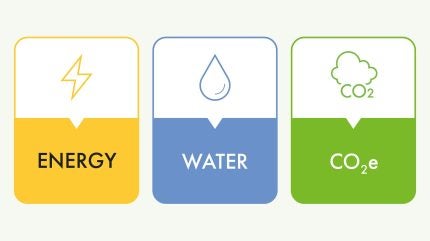
Finnish label material company UPM Raflatac has introduced a new feature that integrates product footprint data into its customer quotes, setting a new standard in the labelling industry.
These data sets, referred to as product passport prototypes (PPPs), offer transparency on material impacts.
By incorporating environmental footprint data into its customer quotations, UPM Raflatac allows label converters to make informed choices and address scope 3 emissions early in the supply chain.
The PPPs are automatically embedded into the company’s quote documentation for customers. They present a full environmental evaluation of the quoted labelling materials.
With raw materials reportedly accounting for 70-90% of converters’ total environmental impact, this integration delivers life cycle data from the beginning of the purchasing process.
Having access to real-time environmental data also allows converters to stay competitive and helps them address sustainability-related queries from their own clients more efficiently.
As regulations tighten, detailed environmental information is becoming essential. The forthcoming Ecodesign for Sustainable Products Regulation for Europe in particular will impose new requirements.
Some products in the EU will also soon need to include a digital product passport (DPP). UPM Raflatac’s launch of PPPs aligns with the direction of these regulatory changes.
The footprints are produced through the company’s label life cycle assessment service, which has received independent verification from the certification body DEKRA.
UPM Raflatac Label Life manager Flora D’Souza said: “The PPPs already cover over 90% of UPM Raflatac’s label products by sales volume globally.
“We are proud to offer this exclusive service in our customer quotes as the first player in the labelling industry.”
In February this year, UPM Raflatac acquired Metamark to improve its growth in the graphics sector.



